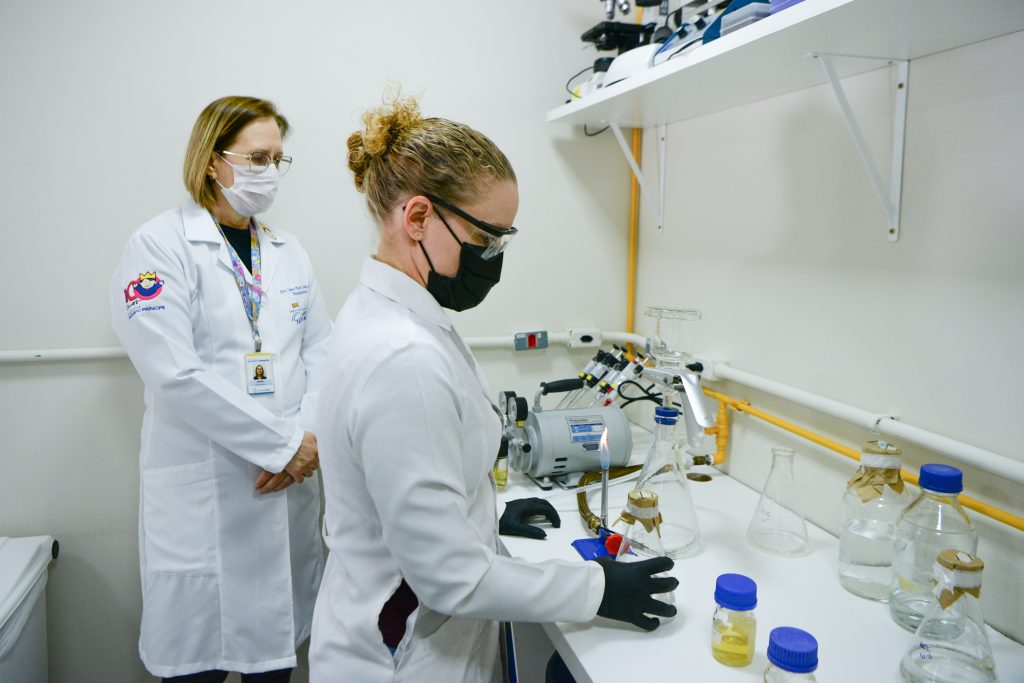Pelé Pequeno Príncipe Research Institute recorded significant scientific production in 2024
74 articles were published in the year, generated from 82 ongoing projects

The Pelé Pequeno Príncipe Research Institute consolidated its relevance in the scientific scene by publishing 74 articles, in 2024, in several national and international academic journals with excellent impact factor. This result reflects the intense work of the Institute’s 14 researchers, which are also responsible for the master’s and doctoral programs in Biotechnology Applied to Child and Adolescent Health, offered in partnership with Pequeno Príncipe College. These publications have co-authors who are master’s and doctoral students.
The published articles were generated from 82 ongoing research projects, of which 63 are classified as translational. The main objective of translational research is to reduce the time between scientific discovery and its clinical application, ensuring concrete improvements in the health of the population. Among the goals of these studies are the development of tools for controlling epidemiological diseases, strengthening technological capacity and transforming laboratory observations into medical interventions.
Capes assessment
The Coordination of Superior Level Staff Improvement(known as Capes), of the Ministry of Education, assesses master’s and doctoral programs every four years. The number and quality of articles published, as well as student participation in scientific production, are some of the indicators considered for this assessment. In the four-year period between 2021 and 2024, the Institute published 270 articles, 72% of which had student participation.
The Capes assessment classifies programs with scores ranging from 1 to 7, with 7 being the highest level of international excellence, and 1, 2 and 3 implying de-accreditation. The program offered by the Institute was assessed with a score of 5 between 2007 and 2017. This score is expected to increase in the four-year period ending in 2024. However, the result of this assessment has not yet been released by Capes.
“We are confident that our score will be improved, as we have produced significant and qualified scientific output during the last four-year period (2020–2024). All of our researchers published articles with the highest score in this four-year period. However, we still need excellence in internationalization activities for 100% of our researchers,” says the Institute’s scientific director, Bonald Cavalcante de Figueiredo.

Research lines
The Institute’s researchers are dedicated to different areas of investigation, addressing everything from complex diseases and oncogenetics to advances in bioinformatics and neuroscience. Studies on childhood cancer and other serious diseases that affect children and adolescents are among the priorities. In addition, the Institute conducts epidemiological analyses to understand patterns of disease spread and develop prevention strategies.
Researchers work with the analysis of genomes, transcriptomes, and proteomes to understand the biological mechanisms, contributing to the personalization of treatments. In microbiology and infectious diseases, studies focus on understanding bacteria and other pathogenic microorganisms, which are fundamental for the development of new therapies.
The area of neuroscience investigates the functioning of the child’s nervous system, with direct impacts on cognitive development and the treatment of neurological diseases. Cellular and pharmacological therapy seeks to develop innovative treatments for chronic and rare diseases. The Institute also invests in the advancement of research with biomolecules extracted from plants and in laboratory animal models of human diseases, among other areas of study.

